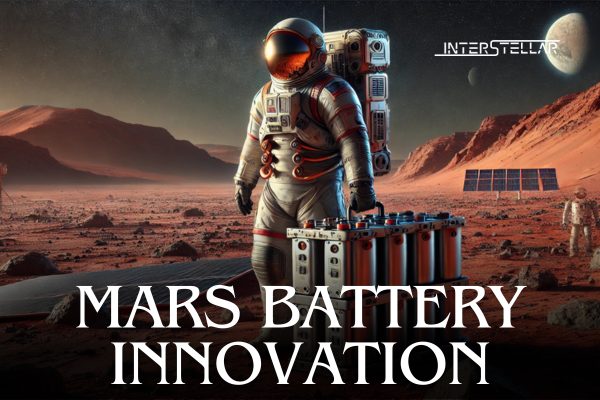New Mars Battery Could Revolutionise Space Exploration
Humans are preparing to explore Mars in the coming years. However, the planet’s harsh conditions and limited resources make it crucial to minimise weight and optimise equipment for sustainable missions.
Tackling the Energy Challenge on Mars
One of the biggest challenges is ensuring a consistent and reliable energy source for Mars bases, rovers, and other essential equipment. Transporting heavy infrastructure to the Red Planet is difficult and costly, so researchers are focusing on innovative solutions that reduce weight while maintaining efficiency.
A team of scientists from the University of Science and Technology of China has developed a groundbreaking battery designed to harness the Martian atmosphere for energy during discharge. This unique “Mars battery” offers a novel way to power equipment without carrying extensive fuel supplies from Earth.
How the Mars Battery Works
The Mars battery differs from conventional batteries, which store energy internally. Instead, it generates electricity by reacting with the gases present in the Martian atmosphere. The battery uses the planet’s high concentration of carbon dioxide (95.32%) along with trace amounts of nitrogen, argon, oxygen, and carbon monoxide to create a chemical reaction that produces electricity. This approach allows the battery to operate as long as Martian gases are available, similar to a fuel cell.
During operation, the battery’s electrodes interact with the Martian gases, creating a reaction that releases electric energy. When depleted, the battery can be recharged using solar or nuclear energy harvested from Mars, enabling sustained power supply. The battery’s ability to function in both light and complete darkness makes it ideal for the varying conditions on Mars.
Built to Withstand Harsh Conditions
Mars experiences extreme temperature fluctuations, with differences of up to 60 degrees Celsius (150 degrees Fahrenheit) between day and night. This poses a challenge for most electronic devices. However, the Mars battery has been designed to withstand these conditions, operating effectively at freezing temperatures of 0°C (32°F).
The battery has a charge/discharge cycle life of 1,375 hours, roughly equivalent to two Martian months, making it capable of long-term operation. Tests simulating the Martian environment showed that the battery can achieve an energy density of 373.9 Wh/kg, allowing it to perform efficiently even in frigid conditions.
Design Optimisations for Better Efficiency
To improve performance, the researchers optimised the battery’s design by increasing the interaction surface area between the electrodes and the Martian atmosphere. They incorporated a folded cell structure and increased the battery cell size to 4 cm², enhancing its energy density to 765 Wh/kg and 630 Wh/l. This design boosts the battery’s capacity and efficiency, making it more suitable for future Mars missions.
The development of this Mars battery demonstrates its potential to power space missions more efficiently by reducing weight and utilising the planet’s resources. This innovation could play a crucial role in advancing human exploration of the Red Planet.


